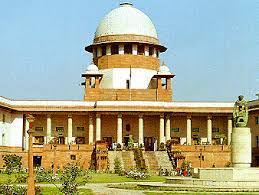The appellant seeking a writ of habeas corpus was dismissed and the order of detention dated 24th March, 2023 (“Detention Order”, hereafter) of the appellant’s husband (“Detenu”, hereafter), impugned therein, upheld. (Para 2)
On an overall consideration of the circumstances, it does appear to us that the existing legal framework for maintaining law and order is sufficient to address like offences under consideration, which the Commissioner anticipates could be repeated by the Detenu if not detained. We are also constrained to observe that preventive detention laws—an exceptional measure reserved for tackling emergent situations—ought not to have been invoked in this case as a tool for enforcement of “law and order”. This, for the reason that, the Commissioner despite being aware of the earlier judgment and order of the High Court dated 16th August, 2021 passed the Detention Order ostensibly to maintain “public order” without once more appreciating the difference between maintenance of “law and order” and maintenance of “public order”. The order of detention is, thus, indefensible. (Para 40)
Now, we proceed with the second issue as to whether there was proper application of mind to all relevant circumstances or whether consideration of extraneous factors has vitiated the Detention Order. (Para 42)
The Commissioner in the Detention Order made pointed reference to the Detenu being a habitual offender by listing 10 (ten) criminal proceedings in which the Detenu was involved during the years 2019-20, consequent to which the Detenu was preventively detained under the Act vide order of detention dated 4th March, 2021, since quashed by the High Court by its order dated 16th August, 2021. It is then stated therein that the Detenu had committed 9 (nine) offences in the years 2022-23, and these offences are again listed out in detail. However, the Commissioner states that the present order of detention is based only on 5 (five) out of these 9 (nine) crimes, which are alleged to show that the Detenu’s activities are “prejudicial to the maintenance of public order, apart from disturbing peace and tranquillity in the area.” (Para 43)
Since the aforesaid order of the High Court went unchallenged and is, thus, binding upon the parties, it was not open to the Commissioner to refer to the very same antecedent offences again in the Detention Order under challenge. There was no direct nexus or link with the immediate need to order detention and we hold extraneous considerations having found their way into the Detention Order. (Para 48)
The other aspect requiring some guidance for detaining authorities and on which we wish to comment is that there is no requirement in law of orders of detention being expressed in language that would normally be considered elegant or artistic. An order of detention, which is capable of comprehension, has to precisely set forth the grounds of detention without any vagueness. (Para 49)
It is pertinent to note that in the three criminal proceedings where the Detenu had been released on bail, no applications for cancellation of bail had been moved by the State. In the light of the same, the provisions of the Act, which is an extraordinary statute, should not have been resorted to when ordinary criminal law provided sufficient means to address the apprehensions leading to the impugned Detention Order. There may have existed sufficient grounds to appeal against the bail orders, but the circumstances did not warrant the circumvention of ordinary criminal procedure to resort to an extraordinary measure of the law of preventive detention. (Para 51)
Whenever an accused is tried for an offence under a penal law which carries a maximum sentence, the Court is obliged while imposing sentence to apply its mind to the specific facts and circumstances of the case and to either impose maximum sentence or a lesser sentence. It has, therefore, a discretion regarding imposition of sentence. We are inclined to the view that there could be no warrant for the proposition that when it boils down to confirming an order of detention under a preventive detention law, which is not punitive, the Government can seek immunity and enjoy an unfettered, unguided and unlimited discretion in continuing detention for the maximum period without even very briefly indicating its mind as to the “imponderables” that were taken into account for fixing the maximum period. The very term “maximum period” in section 13 vests the Government with discretion, allowing it to be exercised while considering whether the detention is to be continued for the maximum period of 12 (twelve) months or any lesser period. In our opinion, the relevant provisions of the Act have to be so read as to inhere a safeguard against arbitrary exercise of discretionary power. (Para 63)
We have come to the conclusion on facts that the activities attributed to the appellant’s husband as such cannot be branded as prejudicial to maintenance of public order. (Para 80)
We cannot uphold the Detention Order. As a consequence, the impugned judgment and order of the High Court too cannot be upheld. The Detention Order and the impugned judgment and order stand quashed. The appeal stands allowed (Para 81)
SUPREME COURT OF INDIA
2023 STPL(Web) 234 SC
[2023 INSC 788]
Ameena Begum Vs. State Of Telangana & Ors.
Criminal Appeal No. 2706 of 2023 [Arising Out Of Slp (Criminal) No. 8510 Of 2023]-Decided on 4-9-2023
https://stpllaw.in/wp-content/uploads/2023/09/2023-STPLWeb-234-SC.pdf







